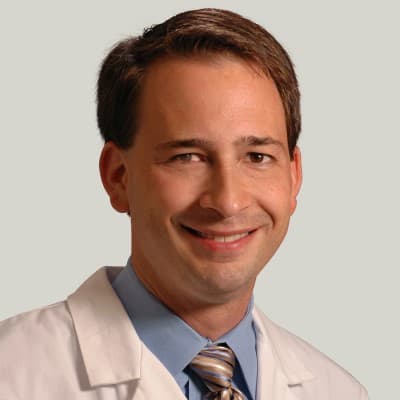Diffuse large B cell lymphoma (DLBCL), the most common form of non-Hodgkin lymphoma in the U.S., is often curable with initial treatment. However, outcomes of the ~40% of patients who experience disease recurrence are dismal. Although stem cell transplantation and CAR T cell therapy salvage a subset of patients, most are not candidates for these aggressive treatments or will relapse after receiving them. Thus, relapsed DLBCL remains a critical area of unmet need. Recently, an immunotherapy that stimulates cancer cell engulfment by macrophages through blocking a “don’t eat me” protein called CD47 has shown promising activity in relapsed DLBCL patients when administered with the anti-CD20 antibody rituximab. However, only 30-40% of patients achieve lymphoma regression after receiving this treatment.
Dr. Kline and his team have devised innovative approaches to enhance CD47 blockade therapy efficacy in relapsed DLBCL. First, by inhibiting a key signaling pathway in macrophages, they showed the ability to enhance their “appetite” for DLBCL cells in the context of CD47 blockade in vitro. Second, he has developed tools necessary to execute an unbiased genetic screen to identify new and targetable “don’t eat me” proteins on DLBCL cells that enable their escape from macrophage phagocytosis. The major goals of this application are to: 1) enhance the in vivo efficacy of CD47 blockade therapy in DLBCL by disrupting a key macrophage signaling pathway, and 2) identify new “don’t eat me” proteins on lymphoma cells that can be targeted alone and in combination with CD47 blockade therapy.
Projects and Grants
Immunotherapeutic targeting of macrophages in diffuse large B cell lymphoma
University of Chicago | Lymphoma | 2023
